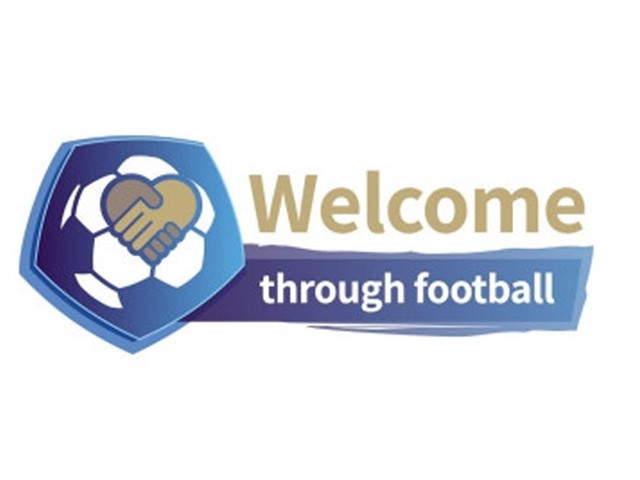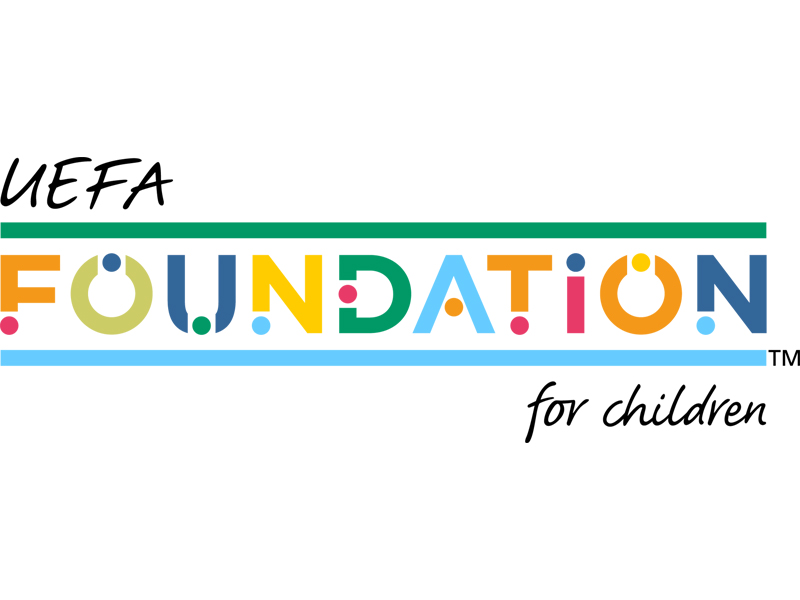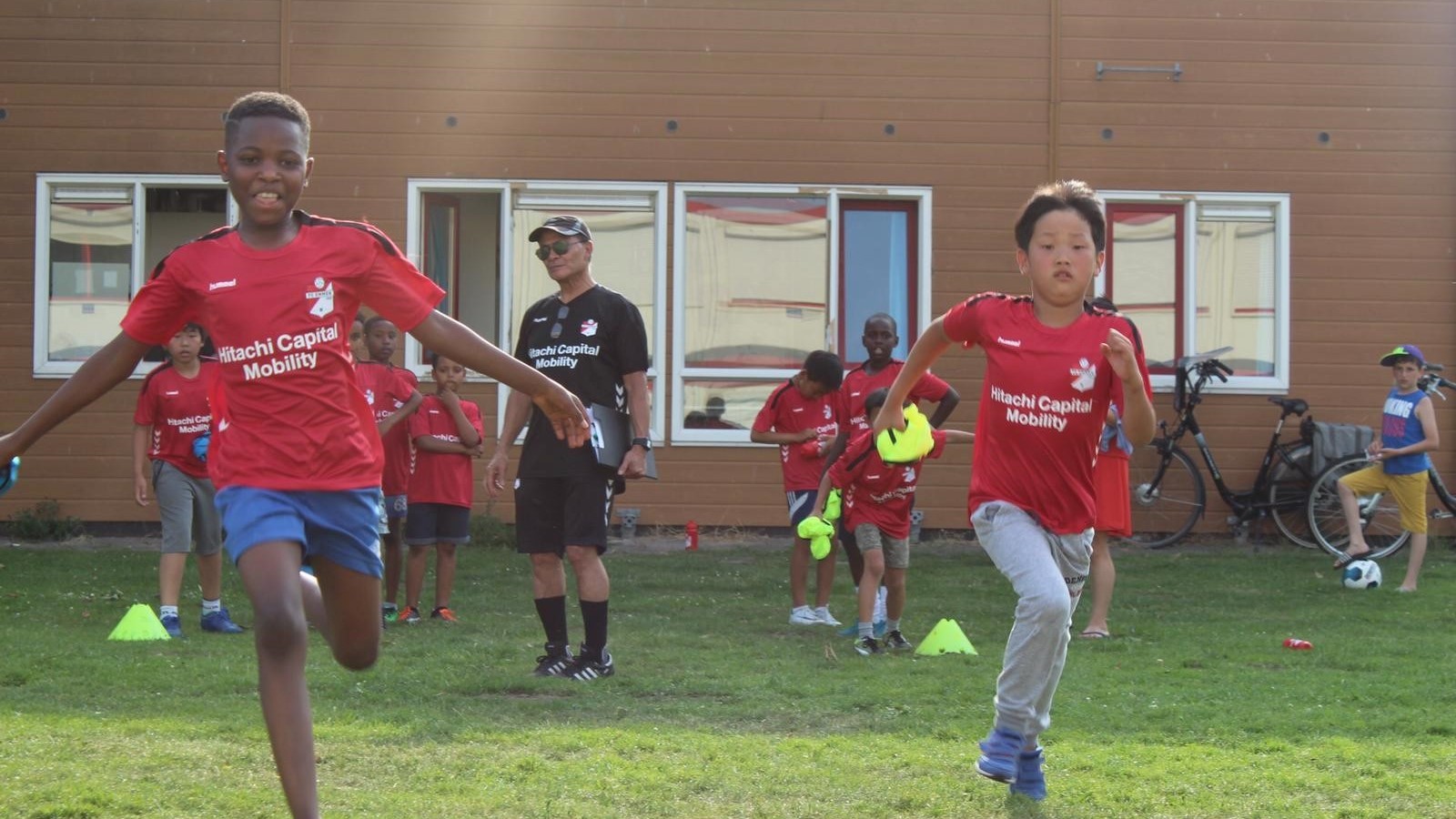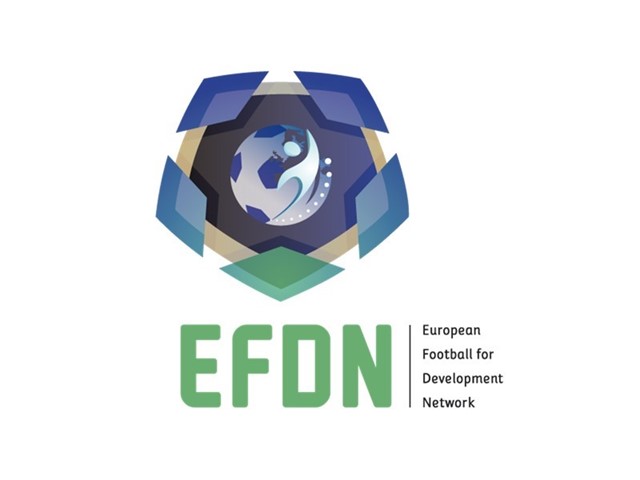Partner: European Football for Development Network (EFDN)
Context
A large proportion of refugees around the world are children and young people. In 2016, more than four in five (83%) first-time asylum seekers in the European Union were younger than 35 years old, with those aged 18 to 34 accounting for slightly more than half of first-time applicants (51%). Nearly a third of all first-time applicants were aged under 18 (32%).
While the resettlement of individuals and families is a priority, ensuring their long-term inclusion into society is also crucial.The Council of Europe’s youth policy focuses on providing all young people with equal opportunities and experiences, thus enabling them to develop their knowledge, skills and competencies and to fully participate in all aspects of society. Special attention is paid to vulnerable groups of young people such as refugees, asylum seekers and migrants.
The Welcome through Football project was developed in line with the statement on the refugee crisis in Europe adopted by the Advisory Council on Youth in 2015, which sets out various priorities and calls for special attention to be paid to the growing number of vulnerable and marginalised young people in Europe.

Project content
Participation in safe and structured activities is vital for the development of young migrants and refugees and the need for additional services for this population is even greater than in previous years owing to the numbers of new arrivals. Almost all the countries participating in the project have high numbers of refugees concentrated in the inner cities. These young refugees are mostly excluded from society and participation in sport can be a first step towards social integration, as it allows them to make friends and establish social networks. Cultural understanding is a central theme of the programme and, by working with and playing alongside their peers from different countries, youngsters build mutual respect and gain a shared educational experience. It is also valuable for young people to understand that, while sporting talent can create opportunities, success can also be achieved by giving back to local communities through citizenship projects.
The project activities are organised into three stages:
- Socialisation to sports – different football activities are offered for young refugees of both sexes, taking into account any special needs, such as language skills or trauma.
- Socialisation in sports – the participants work on team structure and are given more responsibility. Participants also have the opportunity to engage in activities outside the sports training sessions.
- Socialisation through sports – participants focus on the skills they have acquired, with a view to qualifying for further education in and outside of sports.
These three stages offer the participants many opportunities to contribute to their own development, their community and the project itself.
During the first stage, sporting activities enable the participants to relieve stress, cope with trauma and learn a new language. They take part in activities, but do not have any responsibilities other than their own personal development.
During the second stage, participants are introduced to a grassroots club where they discover the importance of volunteering to ensure the sustainability of such clubs. Cooperation with local schools and NGOs provides them with the opportunity to develop themselves further, participate in regular sports training and matches, and take part in a wide variety of volunteering activities offered by a professional or grassroots club, in cooperation with local partners.
During the third stage of the project, participants have the opportunity to do short internships in local businesses, receive additional language training and develop important employability and life skills.
Welcome through football is implemented in partnership with SV Werder Bremen, Everton in the Community, Fundação Benfica, Sheffield United Foundation , Shakhtar Social, FC Emmen (Naoberschap United) and Apollon Limassol FC.
Objectives
The Welcome through Football methodology focuses on the social inclusion and employability of newly arrived young migrants and refugees. To this end, the activities aim to improve the quality of youth work and intercultural dialogue, raise awareness and increase acceptance of diversity in society. The project also builds the capacity of football coaches and youth workers, helping them to develop and share effective methods for reaching out to the marginalised target group and preventing racism and intolerance. The project aims to empower vulnerable and marginalised young people and ease their transition to adulthood, with a particular focus on integration into the labour market.
Better cooperation between local youth and sporting organisations will be established through multiple cross-sectoral partnerships. The project focuses on improving active citizenship, reducing social exclusion and promoting the social autonomy of young migrants and refugees in their new home. To this end, the project aims to encourage volunteering among the refugee and migrant population.
Specific objectives of the project:
- Evaluating existing methodologies
- Delivering Welcome through Football activities and developing the Welcome through Football methodology, practitioners guide and other resources
- Tackling racism, discrimination and violence in sport
- Promoting healthy lifestyles and regular physical activity
- Improving the emotional well-being of refugees through participation in sport
- Improving perceptions about refugees
- Raising awareness among stakeholders (sports clubs, NGOs and national and local governments) of the positive impact of football and sport in general
- Increasing the community and sporting participation of refugees who are at risk of social exclusion
- Encouraging refugees to volunteer in sport
- Raising awareness of the social power of sport
- Sharing experiences and best practices
- Integration into grassroots clubs
- Integration into the labour market
Project activities
- Delivery of five 12-week programmes during which the critical success factors of the Welcome through Football methodology will be tested. Seven clubs will organise a minimum of 672 activities as part of the project, but the total number of activities organised is expected to be around 1,000.
- An affiliation and advocacy programme for youth organisations, sports clubs, associations, federations and public bodies.
- Development of the Welcome through Football methodology and a methodological guide that can be published as an open-access resource on the EFDN educational online platform.
- Networking activities: five transnational project meetings will be organised and presentations will be made at four international conferences to introduce the project, its outcomes and the resources developed (November 2020, Breda, the Netherlands (EFDN conference); March 2021, Budapest, Hungary; November 2021, Bremen, Germany; and March 2022 Liverpool, UK).
- Establishment of a communication and dissemination plan (including workshops at conferences, resources for an online platform for sharing experiences and examples, participation in #FootballPeople action weeks).
- Development of a pilot affiliation programme for youth organisations, sports organisations, clubs and associations to develop and test an innovative approach for promoting the values of sport (respect, fair play, etc.) and facilitating the integration of refugees through sport.
Welcome through Football – Apollon Limassol FC
Expected results
Participants will receive non-formal education on refugee integration through sports, giving them a greater awareness of the benefits of social integration. The establishment of intercultural teams will be encouraged, helping to familiarise participants with European sporting values (fair play, respect, teamwork).
Participants will be empowered by their increased responsibilities and active participation in sport. The project will therefore help to develop a generation of young refugees in Europe with the potential to become community leaders.
The project will also have a direct impact on sports stakeholders, raising awareness of initiatives for refugee integration at all levels of sport and youth work and leading to new partnerships and new networks across Europe.
Partnerships will be established with local grassroots clubs in order to integrate and continue to create opportunities for refugees and migrants after the delivery of the project.
Partner


